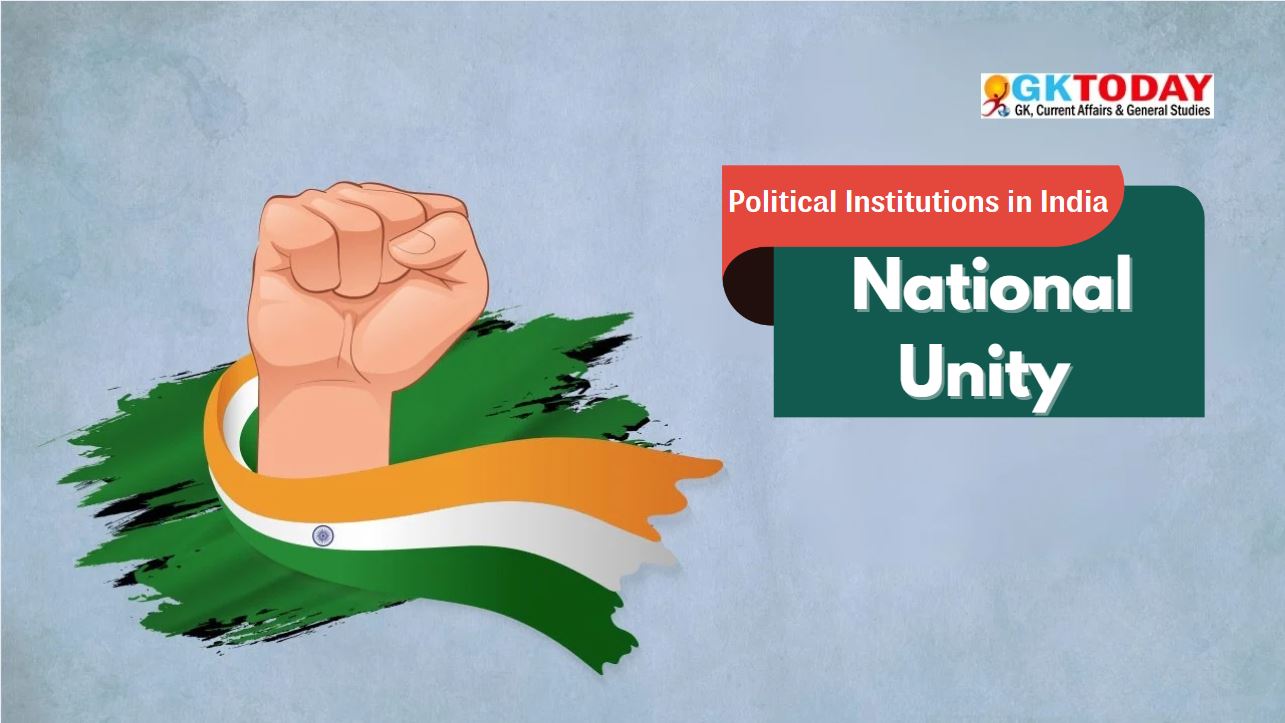National Unity in India – UGC-NTA NET Political Science
National unity is a very important concept in the context of India’s diverse society. It embodies the collective identity and solidarity among citizens, transcending differences in language, religion, and culture.
Definition of National Unity
National unity refers to the sense of togetherness among citizens of a nation. It is crucial for social harmony. A united nation can withstand challenges and work towards common goals.
Constitutional Provisions Supporting National Unity
The Constitution of India contains several provisions aimed at promoting national unity:
- Preamble: Highlights justice, liberty, equality, and fraternity as foundational principles.
- Article 1: Declares India a Union of States, emphasising unity in diversity.
- Article 15: Prohibits discrimination based on religion, race, caste, sex, or birthplace.
- Article 46: Promotes the welfare of Scheduled Castes and Scheduled Tribes, enhancing inclusivity.
Role of the State in National Unity
The state plays role in maintaining national unity through a balanced federal structure.
- Federal Structure: Distributes power between central and state governments, allowing regional autonomy.
- Emergency Provisions: Articles 352, 356, and 360 enable the central government to uphold unity during crises.
National Integration Policies
Various policies have been implemented to encourage national integration:
- National Integration Council (NIC): Established in 1961 to address national integration issues.
- Promotion of Hindi: Acts as a link language to enhance communication among diverse linguistic groups.
Challenges to National Unity
National unity faces several challenges that need to be addressed:
- Communalism: Religious tensions can disrupt social harmony.
- Regionalism: Some regions demand greater autonomy, threatening national cohesion.
- Casteism: Social stratification can lead to division and conflict.
Measures for Promoting National Unity
To strengthen national unity, various measures can be adopted:
- Education: Incorporating national integration themes in school curricula.
- Cultural Exchange Programs: Initiatives that promote understanding of diverse cultures.
- Youth Programs: Engaging youth in national service encourages a sense of belonging.
Role of Political Parties in National Unity
Political parties play a critical role in shaping national unity:
- National Parties: Such as the Indian National Congress and Bharatiya Janata Party, represent diverse interests while promoting unity.
- Regional Parties: Sometimes prioritise regional interests over national unity, creating potential divides.
Importance of National Unity
National unity is vital for multiple reasons:
- Social Cohesion: Essential for maintaining peace in a diverse society.
- Economic Development: A unified nation can effectively pursue collective economic goals.
- Political Stability: Contributes to a stable environment, crucial for democracy.
Historical Context of National Unity
The historical context of national unity in India is rich and complex:
- Freedom Struggle: Various movements united people against colonial rule.
- Post-Independence Efforts: Integration of princely states encourageed a unified national identity.
Contemporary Issues Affecting National Unity
Several contemporary issues influence national unity :
- Secularism: Plays a critical role in promoting unity amidst religious diversity.
- Globalisation: Impacts national identity and unity, creating both opportunities and challenges.
- Social Media: Influences public opinion, affecting national unity positively and negatively.


